Cube
Categories: gcse geometry 3d geometry

A cube is a square box (or block) shape:

The faces of a cube are all square.
Here is a rotating view of a cube:
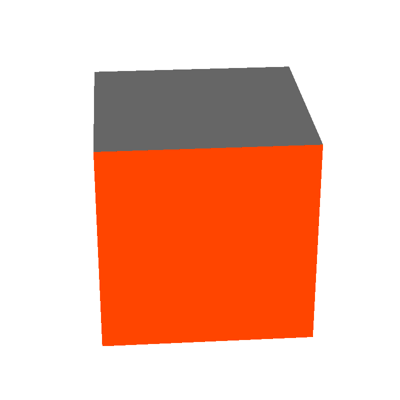
Here is a video about cubes:
Volume
A cube is a special type of cuboid that has equal width, length and height:
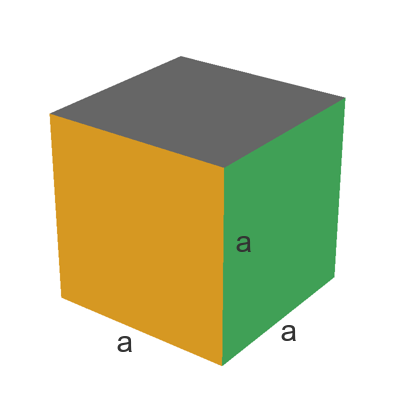
For a cube with sides of length a, the volume is:

The volume is a cubed (this is where the term cubed comes from).
Cube net
We can unfold a cube:

When the cube is completely unfolded w it creates the following net:
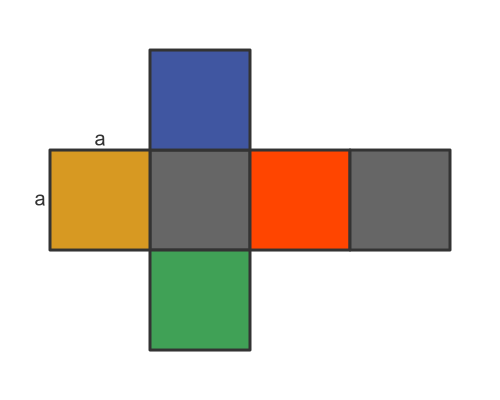
This shows that a cube has 6 square faces - the top, bottom, and 4 sides.
Here is an animation of a cube unfolding:
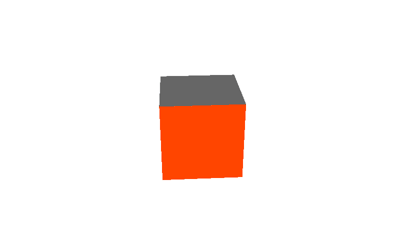
Cube surface area
We can find the surface area of a cube by adding up the areas of all its faces. A square has six faces, and each face has an area of a squared, so the total surface area is:
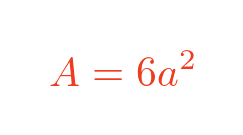
Cube facts
A cube has eight corners (vertices).
It has twelve edges.
A cube is a Platonic solid (a 3D shape where all the faces are identical regular polygons, squares in this case).
See also

Join the GraphicMaths Newletter
Sign up using this form to receive an email when new content is added:
Popular tags
adder adjacency matrix alu and gate angle answers area argand diagram binary maths cartesian equation chain rule chord circle cofactor combinations complex modulus complex polygon complex power complex root cosh cosine cosine rule countable cpu cube decagon demorgans law derivative determinant diagonal directrix dodecagon eigenvalue eigenvector ellipse equilateral triangle euler eulers formula exercises exponent exponential exterior angle first principles flip-flop focus gabriels horn gradient graph hendecagon heptagon hexagon horizontal hyperbola hyperbolic function hyperbolic functions infinity integration by parts integration by substitution interior angle inverse hyperbolic function inverse matrix irrational irregular polygon isosceles trapezium isosceles triangle kite koch curve l system line integral locus maclaurin series major axis matrix matrix algebra mean minor axis n choose r nand gate newton raphson method nonagon nor gate normal normal distribution not gate octagon or gate parabola parallelogram parametric equation pentagon perimeter permutations polar coordinates polynomial power probability probability distribution product rule proof pythagoras proof quadrilateral questions radians radius rectangle regular polygon rhombus root sech segment set set-reset flip-flop sine sine rule sinh sloping lines solving equations solving triangles square square root standard curves standard deviation star polygon statistics straight line graphs surface of revolution symmetry tangent tanh transformation transformations trapezium triangle turtle graphics uncountable variance vertical volume volume of revolution xnor gate xor gate